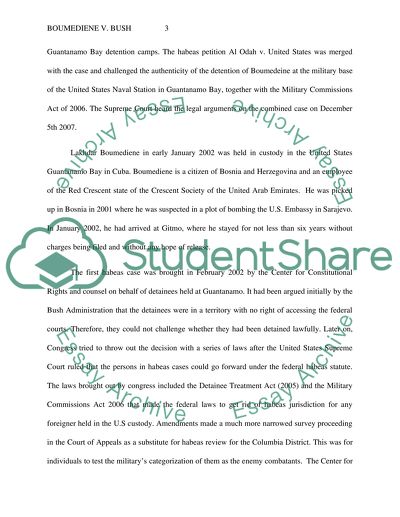Cite this document
(“Boumediene v. Bush Case Study Example | Topics and Well Written Essays - 1750 words”, n.d.)
Retrieved de https://studentshare.org/history/1447229-boumediene-v-bush
Retrieved de https://studentshare.org/history/1447229-boumediene-v-bush
(Boumediene V. Bush Case Study Example | Topics and Well Written Essays - 1750 Words)
https://studentshare.org/history/1447229-boumediene-v-bush.
https://studentshare.org/history/1447229-boumediene-v-bush.
“Boumediene V. Bush Case Study Example | Topics and Well Written Essays - 1750 Words”, n.d. https://studentshare.org/history/1447229-boumediene-v-bush.


